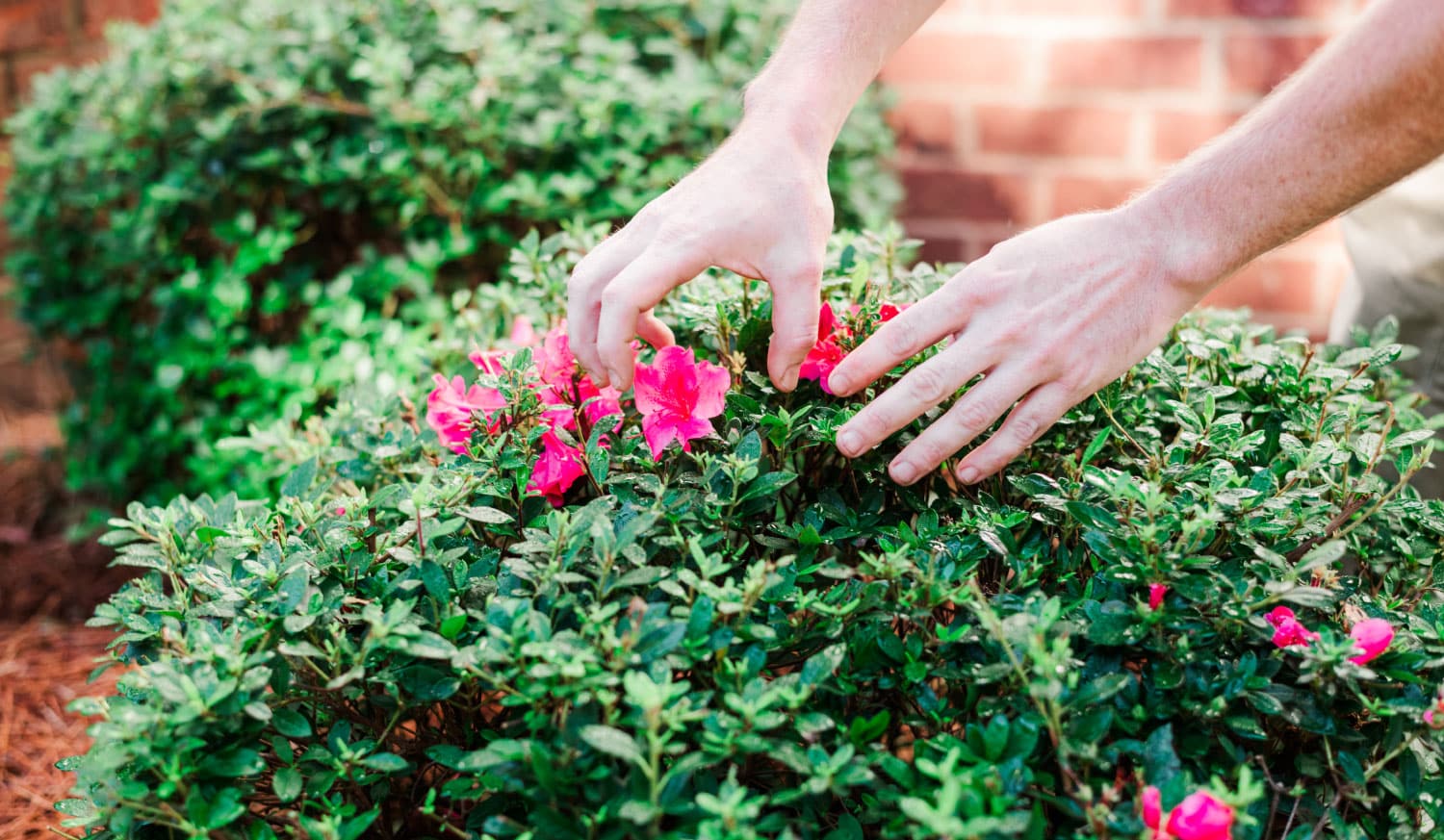Spring is here. Bees are buzzing, birds are chirping, flowers are blooming, and our landscapes are turning green again. Nothing can get in the way of this, right? Late freezes are frustrating and can cause considerable worry about the potential damage to trees and shrubs. While not often fatal, frost on these soft tissues can dramatically change the look of your landscape.
Will My Plants and Flowers Recover after a Frost?
The short answer is yes and no. Let’s discuss what frost does to plants and flowers and then talk about recovery. Freezing temperatures and frost in the winter freeze the leaves on plants, killing them and creating discoloration. The arrival of Spring can feel restorative in a lot of ways. A primary driving force behind those feelings of restoration is the new growth that spring generates. Plants take signals from the warm days and begin producing buds that will become new leaves and flowers.
Frost and leaves: New leaves are soft. As they unfurl from their buds, they are growing into the natural solar panels they are. While they’re growing, they remain soft and pliable, not generating a substantial cuticle until later. The cuticle is a waxy layer that all leaves have. While some leaves are waxier than others, this thin film provides protection from adversities, frost included. When frost settles on soft leaves, ice crystallizes in the intercellular spaces and ruptures the cell walls causing the leaves to desiccate, discolor, and eventually fall off. Outside of plants that have additional stresses, most plants will produce another flush of buds and leaves after a frost.
Frost and flowers: Flowers are also soft tissues. They aren’t meant to be hardy to freezing temperatures. Flowers are interesting shapes and bright colors with the primary purpose to attract pollinators. Warm temperatures trigger flowering plants to set buds, but they have no way of knowing the last frost hasn’t happened. Similar to the way frost kills leaves, it can also freeze flowers. Plants will produce another flush of leaves out of necessity, but flowers may be out of the question for the current season if a freeze destroys them at budset.
Can I Protect My Plants from Frost?
Yes, you can protect your plants from frost. Protecting your plants from frost starts with healthy plants. Management strategies for disease resistance and weed control in our landscapes are positively influenced by plant health. The best defense is aided by a really good offense. Natural processes for stress response and recovery are best performed in plants that aren’t already stressed by other factors. In other words, healthy plants do healthy plant things.
Start with plants that are well-adapted for your climate; this could mean the difference between long-term contentment or frustration. Palms, for instance, may perform exceptionally well in our Atlanta-area summer temps but struggle with our unpredictable winters and springs. Plants that are happy growing here need to be cared for properly as well. This means pruning, watering, and fertilizing in ways conducive to good growth, short recovery, and optimal energy storage. Even when all things are done well, however, a late frost may catch ornamental plants off guard.
Cover ornamental plants and beds to create a barrier that prevents frost from settling. Covering your plants maintains a temperature just above freezing under the material. For best results, these coverings should be placed while temperatures are still above freezing, and they work best when weighted or staked to keep wind from displacing them. Remove the coverings daily to allow air flow on warm days. Prolonged periods under coverings can create additional issues.
Important Takeaways:
- Late frosts can cause discoloration and death of soft foliage and flowers.
- Cold temperatures and frost rupture the cell walls of these soft tissues.
- Plants will refoliate, but if flower buds are frozen, they may not reproduce them.
- Healthy plants do their best to resist and recover from frost damage. Ensuring plant health by selecting the right plants and treating them well is the best defense against most stressors.
- Covering ornamental plants and flowers can limit or eliminate damage from frost and freezing.
- Reach out to us at Nature’s Turf with any questions. Give us a call at 678-831-6343, or email us at info@naturesturf.com. We look forward to partnering with you to help you achieve a healthy and beautiful landscape.








